During his recent visit to Vietnam to attend a number of culinary programs as part of a series of events organized by the French Consulate General in Ho Chi Minh City to celebrate 50 years of Vietnam-France relations, he granted Thanh Nien reporters an exclusive interview.
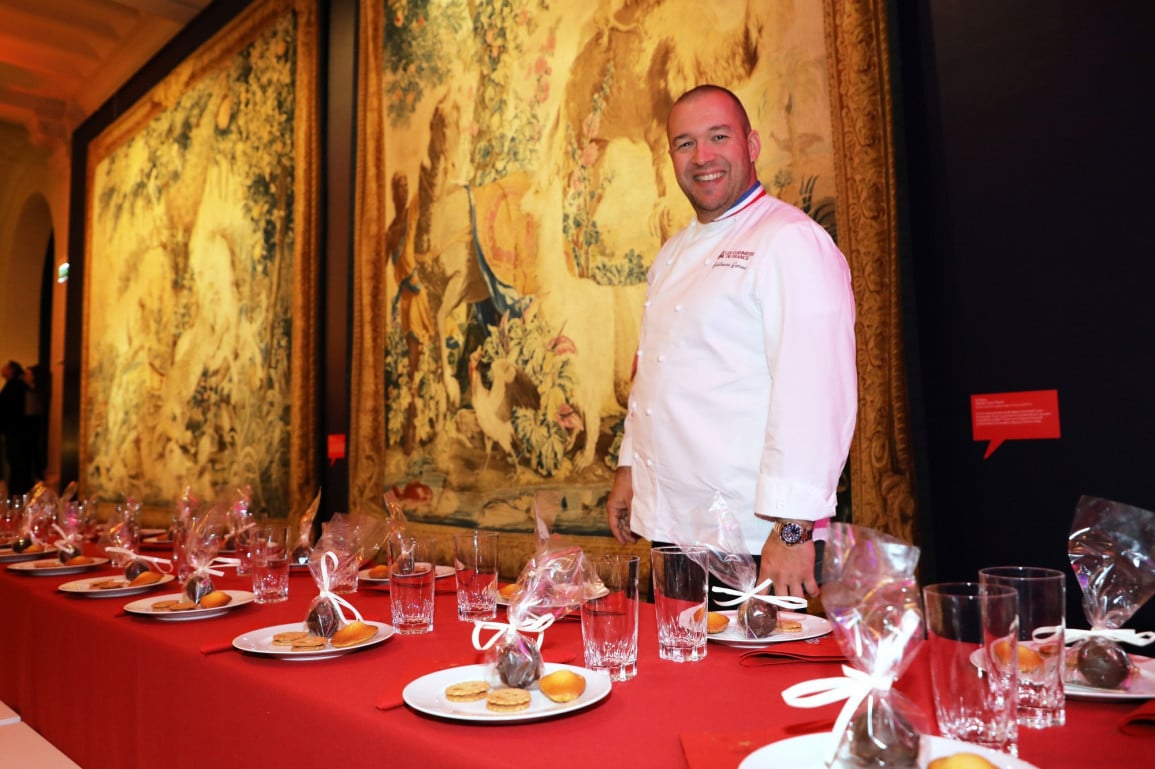
Mr. Gomez is currently the Special Envoy of the President of France and Ambassador in charge of gastronomy.
Forged in the finest restaurants in France
45 years old, a quarter of a century directly or "leading" in serving a total of more than 2 million meals at the Élysée Palace, and of course, the most important diners are 4 presidents and their families, and high-ranking guests... Very successful in the culinary profession, but is this a choice that completely bears his personal mark, when his family has nothing to do with this field?
- First of all, I must say that I was very lucky because I knew what I wanted to do since I was a child, while many young people are still confused when choosing a career for the future. As for me, in a festival at kindergarten where there was a part where I dressed up as my favorite character, among many friends who were princes, princesses, or cowboys, I chose to wear a chef's costume. Therefore, although no one in my family worked in the restaurant - hotel industry, when I finished middle school, I immediately switched to studying cooking. And once again, I was lucky to meet good teachers, who helped strengthen my love for cooking.
After finishing the 2-year course at the Paris Culinary School (EPMT), the head of the internship introduced me to work at the 2-Michelin-starred restaurant of the famous chef Jacques Le Divellec. I worked there for 3 years. And then it was Mr. Le Divellec who sent me to the kitchen of the Élysée Palace, initially to fulfill my military service for 1 year. The way of working here is completely different from that of regular restaurants, we do not have a fixed schedule because everything depends on "current events": the president's activities, foreign affairs programs... I also got to meet many famous chefs from all over the world, they discussed with the head chef and the kitchen team about the recipes of the dishes, cooking techniques. For a young chef like me, it was wonderful because it could be considered as being trained at the top restaurant in France.
Mr. Guillaume Gomez
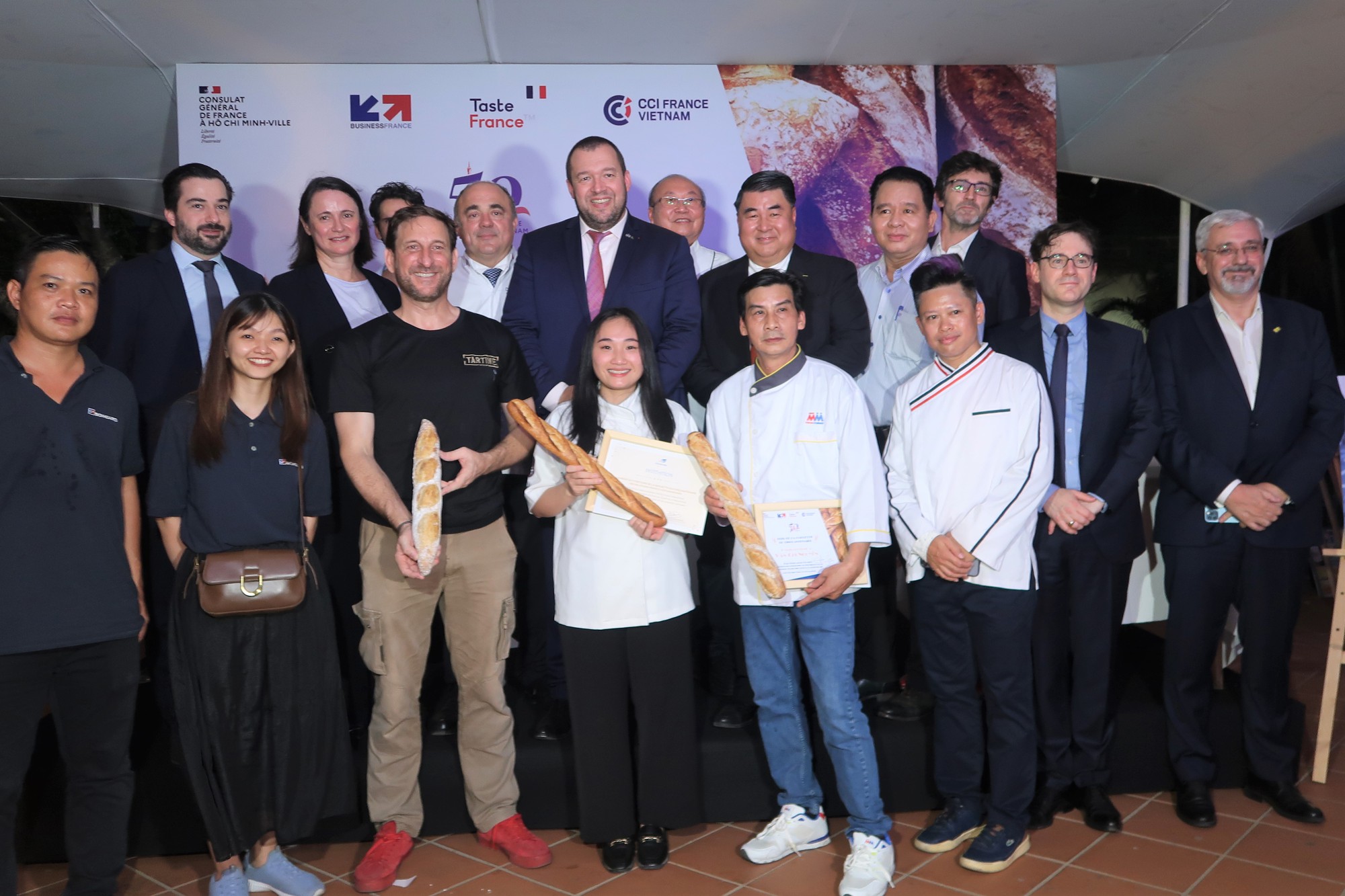
Former Chef of the Élysée Palace is the chief judge of the baguette making competition to celebrate 50 years of Vietnam - France relations.
After completing my military service, I was offered a job by the head chef of the Élysée Palace, and have been officially attached to the Presidential Palace since that time.
Your journey with the culinary profession seems to have been smooth, because you quickly got to work in "exceptional" environments and were able to assert your abilities from a very young age?
- At the age of 25, I was awarded the title of "Best Worker of France" - a shirt with a collar in the blue, white and red of the French flag. I was the youngest person ever to be awarded this title in the "cooking profession" category. Just one year later, I became Sous Chef of the Élysée Palace, and when Chef Bernard Vaussion retired in 2013, I became his successor. Everything seemed to come very smoothly for me, but it was all the fruit of persistent efforts.
When I have the opportunity to talk to young people, I often say: "I have never had to ask for a job. You should impress them with the quality of your work. Since finishing my apprenticeship, it has always been my teachers and superiors who have introduced me to other superiors. Therefore, I have never written a job application." To be more specific, in my time, when studying culinary arts, you only had one day off per week, and the work each day was from early morning to late at night. The dishes displayed on the table were delicious and beautiful, but in the kitchen, the chef had to roll up his sleeves to prepare fish, shrimp, cut meat... It was normal for someone to get burned by oil splashes or accidentally cut his hand when peeling vegetables. To "mature" in the profession, in my time, a chef took about 10 years, including the time studying at school and learning and practicing skills in restaurants. But nowadays, it might take young people 20 years to reach the same level, simply because the work is lighter and there is less time during the day to practice the profession.
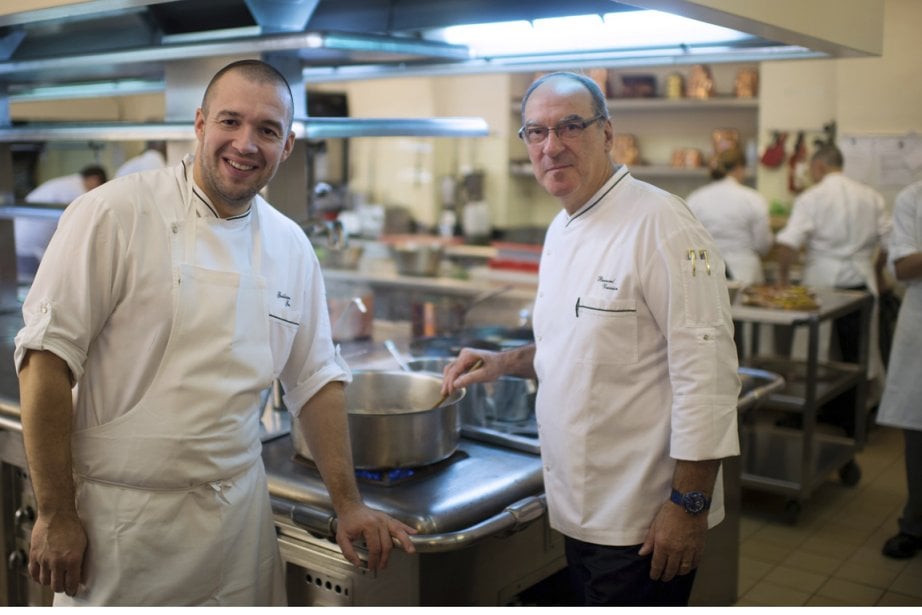
Mr. Gomez achieved early success in the culinary profession thanks to his tireless efforts.
Being a Chef de Cuisine at the Élysée Palace is a dream job for anyone entering this profession, but in addition to culinary talent, it is also a position that requires many special qualities and abilities?
- The Head Chef of the Élysée Palace must take care of both the personal meals of the President and his family; and the state dinners, or official receptions held at the Presidential Palace. Next, the Élysée Palace has nearly 900 employees, and my colleagues and I also take care of meals for a portion of them. In addition, there are important tasks such as accompanying - if necessary - the President on official trips. Therefore, the role of the Head Chef of the Élysée Palace is quite similar to that of the head chef of large hotels, having to coordinate many large and small tasks at the same time.
One thing to emphasize is that as the Head Chef of the Élysée Palace, you will not cook according to your own preferences, but will prepare dishes according to the expectations of special "diners", whose daily guests are... the president. I cook for President Jacques Chirac differently than I cook for Presidents Nicolas Sarkozy, François Hollande, or the current president Emmanuel Macron. Because each person has different tastes, depending on many factors such as hometown and habits. Different generations have different eating habits, for example, a French meal in previous decades often had more "quantity" than it does today. In terms of age, President Chirac is much different from Presidents Sarkozy, Hollande and Macron, so his "culinary perspective" is also very different. However, all four presidents I served had in common a great love and deep knowledge of French cuisine, a love of exploring and enjoying dishes from many different regions of the country.
Mr. Guillaume Gomez
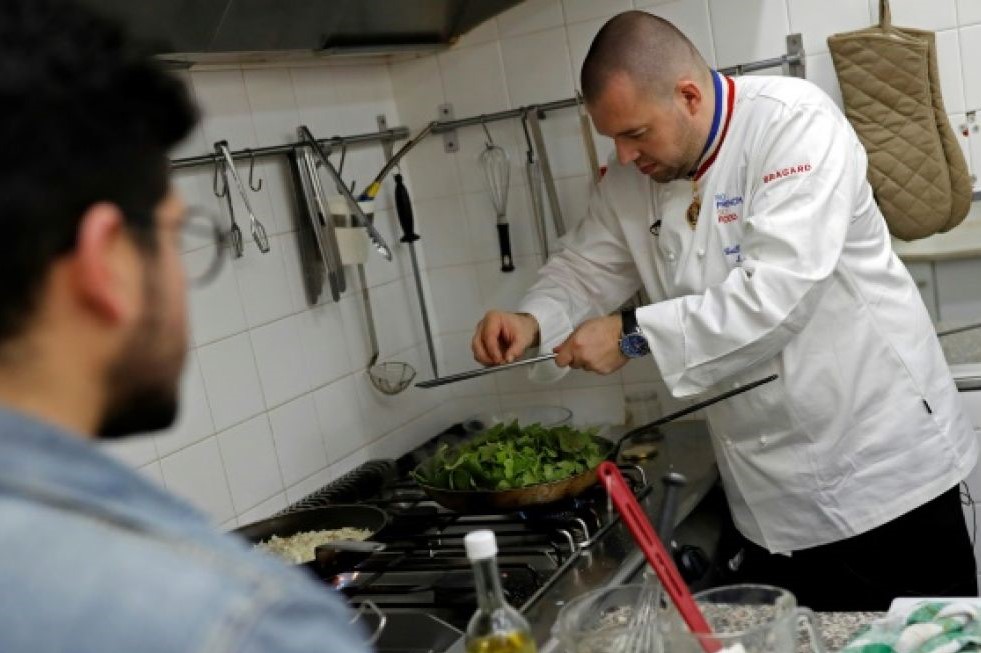
Mr. Gomez gives a cooking demonstration at an event organized by the French Embassy in Israel in 2018.
"Cuisine changes with the times"
So, every time France has a new President, the Chef of the Élysée Palace will have to prepare a completely different "style" of cooking? In addition, you just commented that "different generations have different eating habits", so the kitchen of the Élysée Palace will focus on traditional French cuisine, but will also not be afraid of "variations" of modern cuisine?
- For each president, in addition to "general" information, I have to learn more about personal eating habits through friends and relatives, about popular dishes from their homeland, and also about the preferences and tastes of family members living in the Élysée Palace with the president. That is the initial stage when a new president takes office, and of course, the later the job, the smoother it will be. For example, before becoming President, Mr. Chirac was already a seasoned politician, a former minister, mayor of Paris... so his culinary preferences were more or less known, so finding out was not difficult. Interestingly, President Chirac loves Asian cuisine: Vietnamese, Korean, Japanese, Chinese... He not only does not mind but also prefers spicy dishes, and especially likes hot and crispy dishes, such as Vietnamese spring rolls. Occasionally, he still goes to dine at Asian restaurants. At the Élysée kitchen, we have often purchased ingredients and spices to prepare Asian dishes when requested.
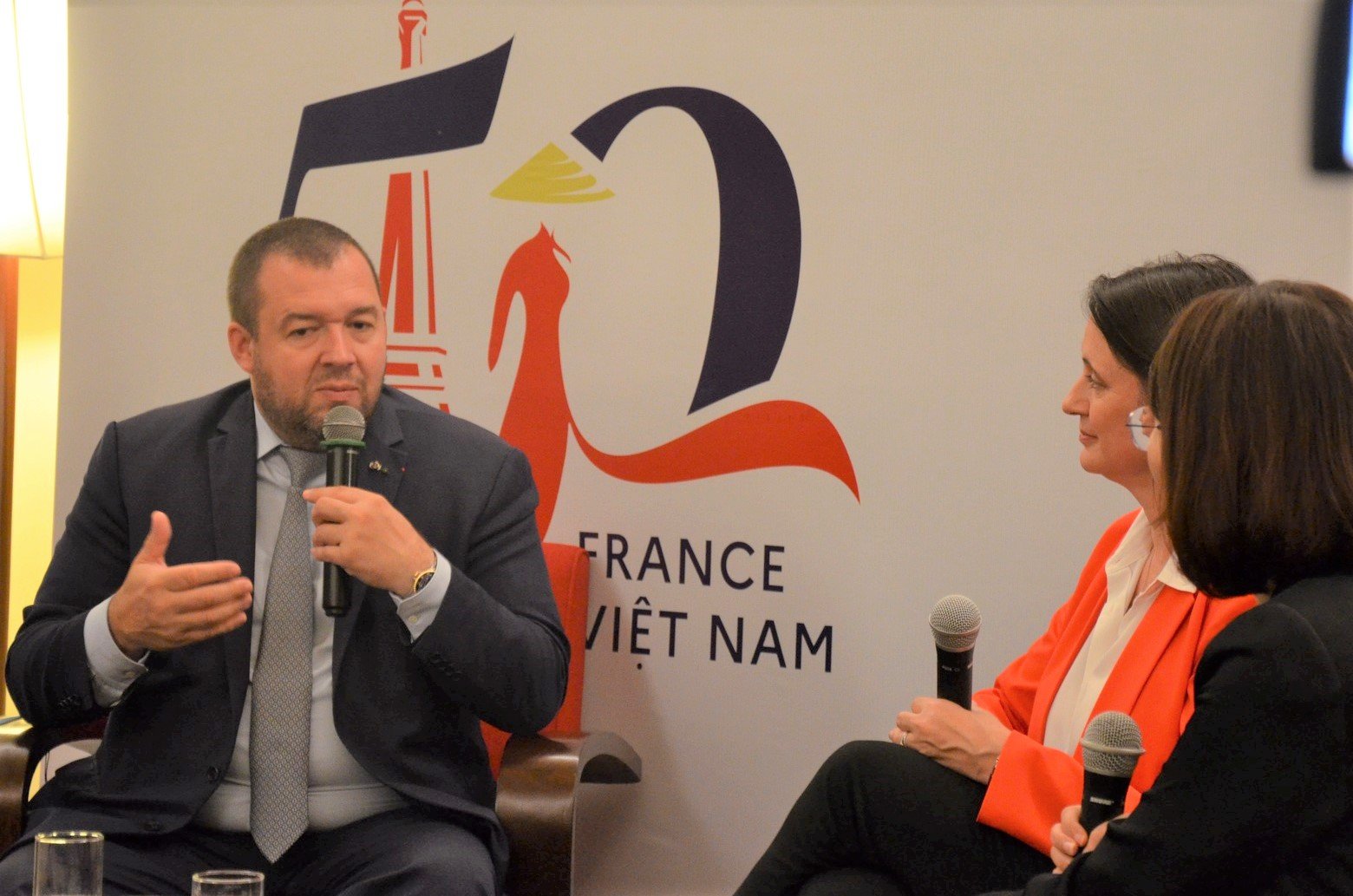
Mr. Gomez participated in a discussion on cuisine and diplomacy at the French Consulate General in Ho Chi Minh City.
French Institute in Ho Chi Minh City
Younger presidents, like Mr. Macron, tend to eat smaller portions than their predecessors. Today's eating habits are generally "lighter," with restaurants and eateries all over the world serving smaller portions and faster meals to accommodate the fast pace of life. Presidents are no exception. Just because the Élysée Palace is an ancient structure, closely tied to French history, does not mean that everything in it is out of step with the times. In our kitchen, the head chef and assistant chefs are younger, and the cooking style is more modern. Although we pay attention to preserving the traditional values of French cuisine, the cuisine itself changes with the times, and the Élysée Palace kitchen still welcomes those changes.
When you were working at the Élysée Palace, were every visit by leaders of other countries, especially when it was a state visit accompanied by a state banquet, unforgettable memories for you?
- Organizing a state banquet is not a simple task, we have to ensure many very strict principles. The protocol officer of the Presidential Palace will discuss with the counterpart of the delegation about to make a state visit. All details will be discussed: where the visiting head of state will stay, which places to visit, the official program, economic and cultural programs..., and of course, there will be meals, the most important part of which is the state banquet. From these discussions, I will be given a list of the visiting head of state's eating habits, especially "dishes/ingredients to avoid", which may be related to religious factors (such as some dishes that Muslims or Jews do not eat), allergies, or personal tastes... For example, a king of this country does not like carrots, a president of another country does not eat pork, another is vegan...
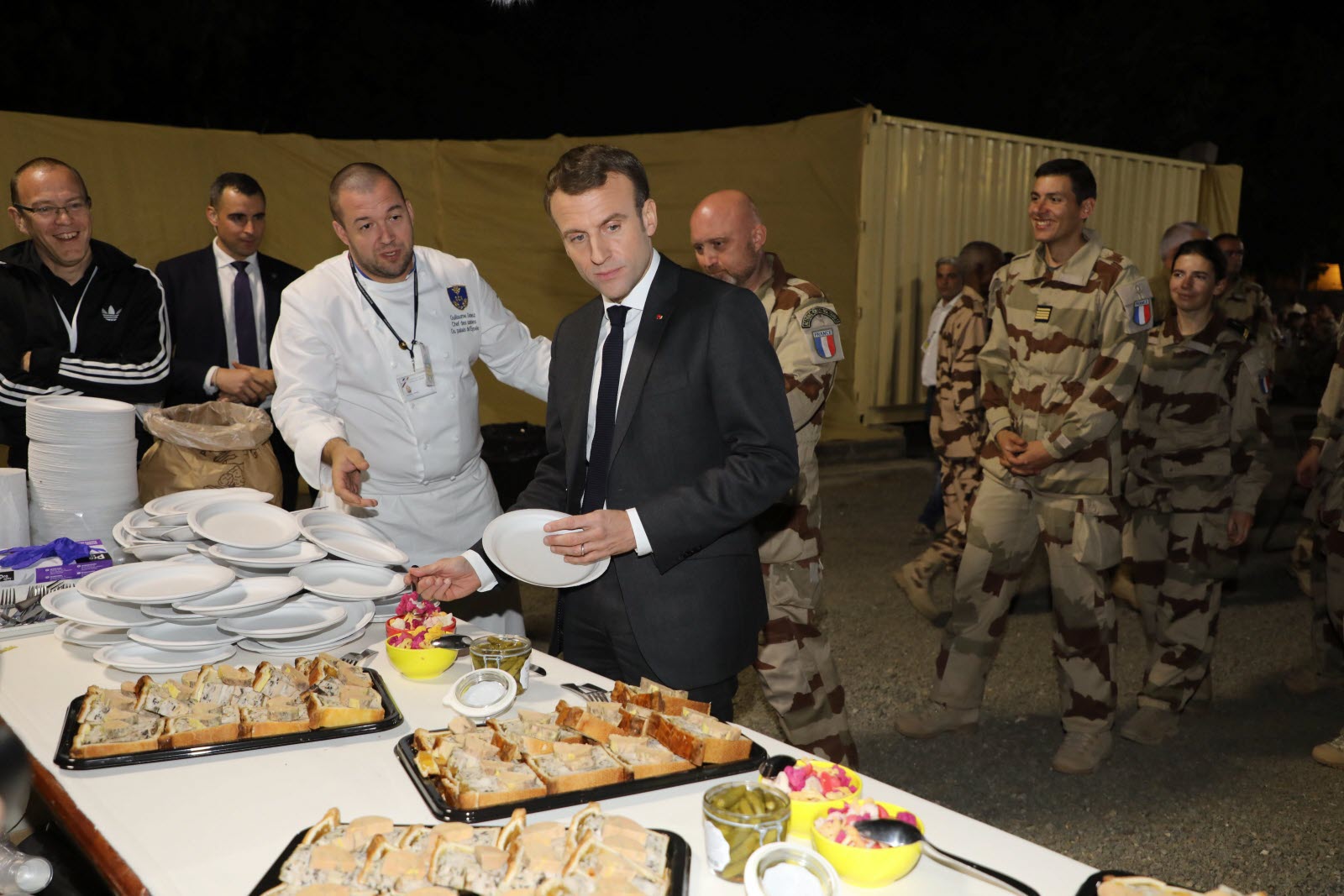
Chef Gomez accompanied President Macron on a visit to a French barracks in Chad and served a Christmas feast to soldiers there in December 2018.
For my part, I have the advantage of being part of the "Chef of Chefs" (CCC) network, which brings together chefs from presidential palaces and royal palaces from many countries around the world. When preparing a state banquet to entertain the head of state of a country, through CCC, I can call and ask my colleagues who serve this person every day. Thanks to that, the details of their personal tastes will be clearer. For example, the list provided has a note "avoid carrots", but I can ask my colleagues in more detail: does the president of that country absolutely not eat carrots, or does he just not like to eat them raw in appetizers, but still accepts processed carrots? Based on all the above factors, we will propose a menu with many dishes for each appetizer, main course, dessert..., and the person who decides on the final menu is the President of France.
There was a party, although not a state visit, that left many memories for me, was the luncheon during the United Nations Conference on Climate Change (COP21) held in Paris in 2015. My colleagues and I at the Élysée Palace prepared the luncheon with the presence of more than 190 leaders of countries and territories. In addition to choosing a menu that could suit many different tastes, from East to West, we also tried to convey environmental messages. The menu that day had many "ecological" elements: environmentally friendly ingredients; limiting food waste...
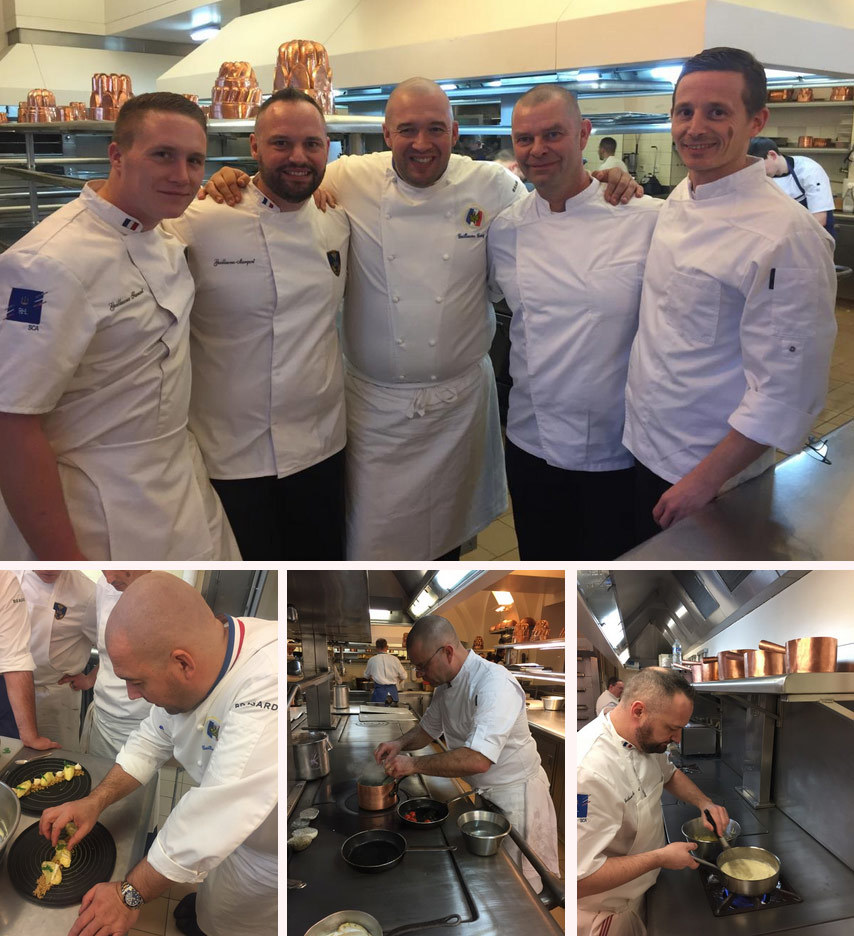
Chef Gomez instructs French army chefs during a training session at the Élysée Palace in 2019
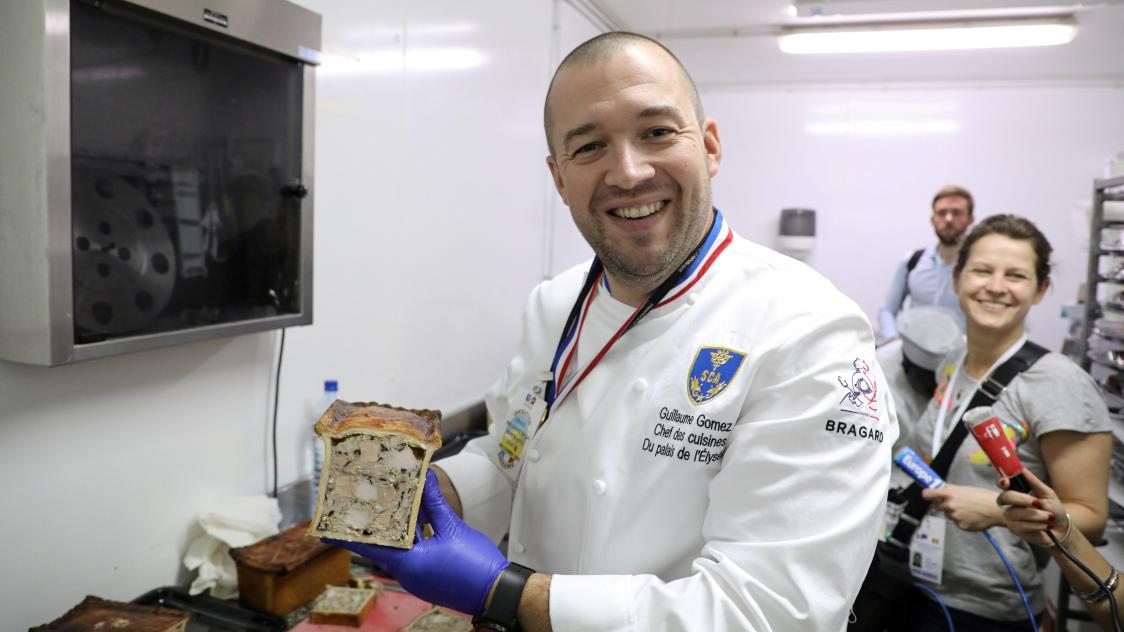
The head chef of the Élysée Palace has loved cooking since he was a child, so he is very happy to be able to live his passion.
Over the past two years, he has taken a new direction, but is this still a journey that is closely linked to his passion from kindergarten?
After 25 years working at the Élysée Palace, I wanted to move on to another job, another challenge. And I was honored to be given the position of Presidential Envoy and French Ambassador in charge of gastronomy by President Emmanuel Macron. France is perhaps the first country in the world to have a "culinary ambassador". My role is to support French diplomatic missions abroad - in the recent case, the French Consulate General in Ho Chi Minh City - to promote the country's cuisine, including many aspects: introducing organizations and individuals in the industry, from producers, distributors, to restaurants and bakeries; promoting French cuisine to attract foreign tourists to our country.
Thank you for this interesting conversation!
Source link



![[Photo] Parade to celebrate the 50th anniversary of Laos' National Day](/_next/image?url=https%3A%2F%2Fvphoto.vietnam.vn%2Fthumb%2F1200x675%2Fvietnam%2Fresource%2FIMAGE%2F2025%2F12%2F02%2F1764691918289_ndo_br_0-jpg.webp&w=3840&q=75)

![[Photo] Worshiping the Tuyet Son statue - a nearly 400-year-old treasure at Keo Pagoda](/_next/image?url=https%3A%2F%2Fvphoto.vietnam.vn%2Fthumb%2F1200x675%2Fvietnam%2Fresource%2FIMAGE%2F2025%2F12%2F02%2F1764679323086_ndo_br_tempimageomw0hi-4884-jpg.webp&w=3840&q=75)



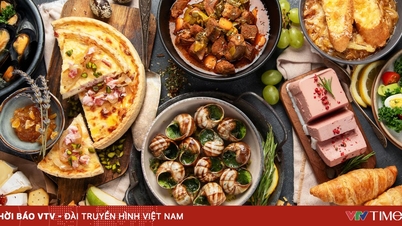

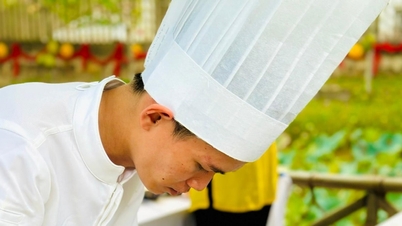




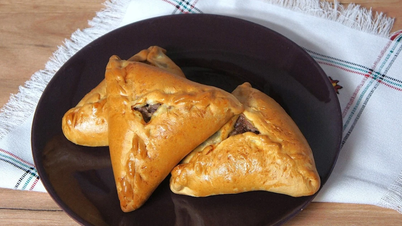

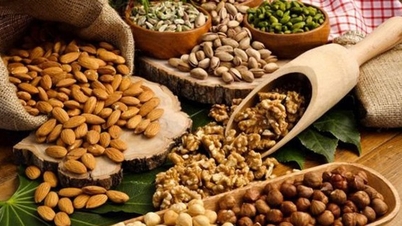

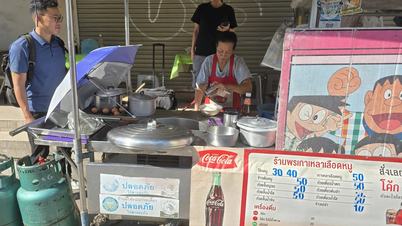
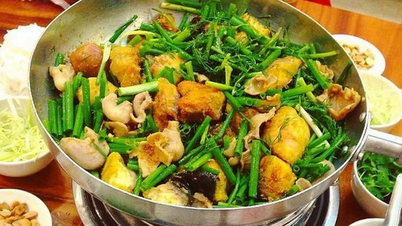
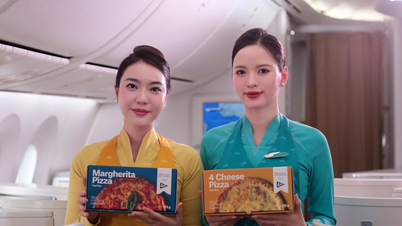
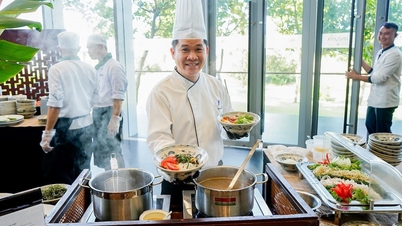









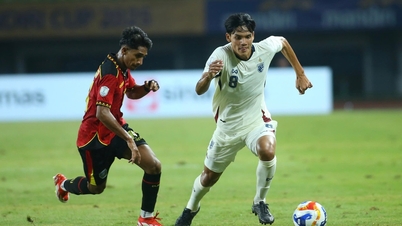

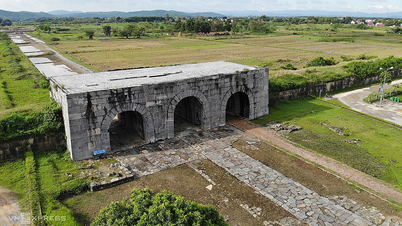










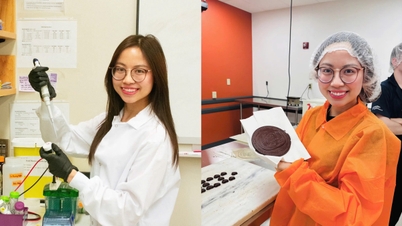
























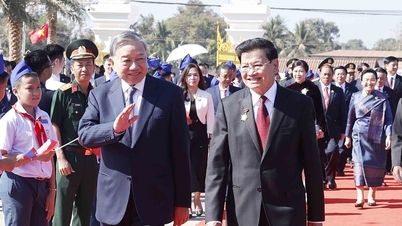



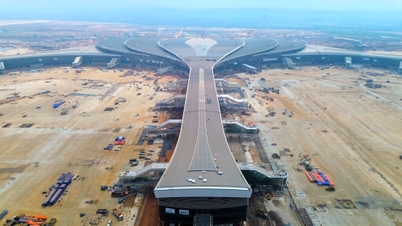

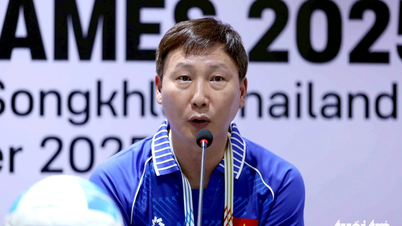

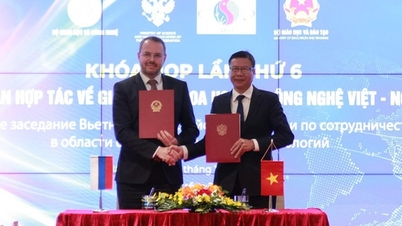


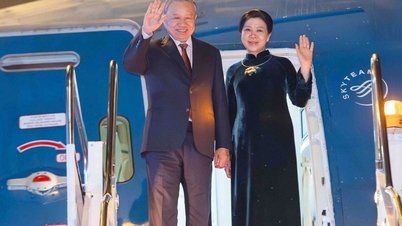

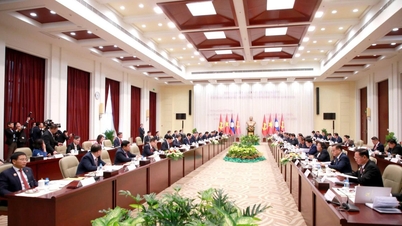

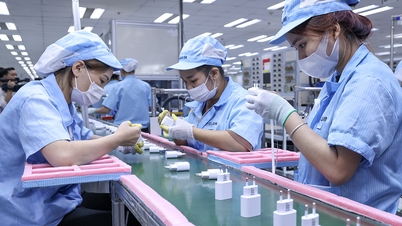

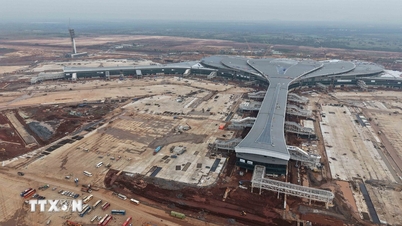




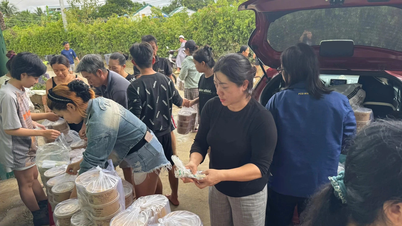











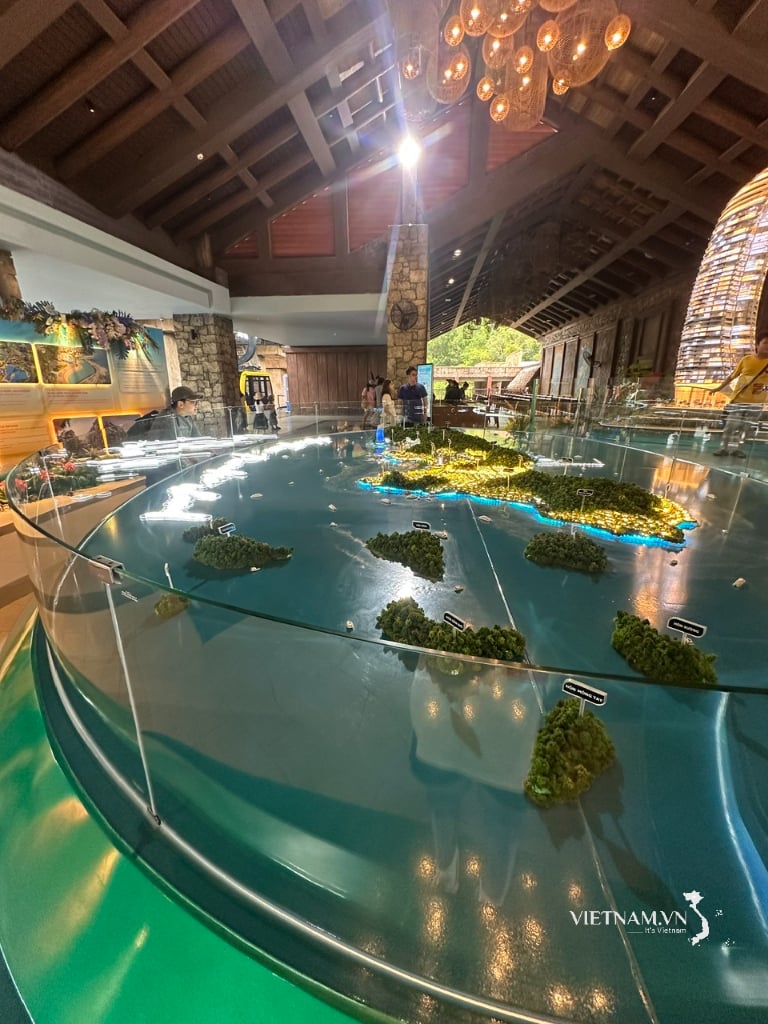


Comment (0)